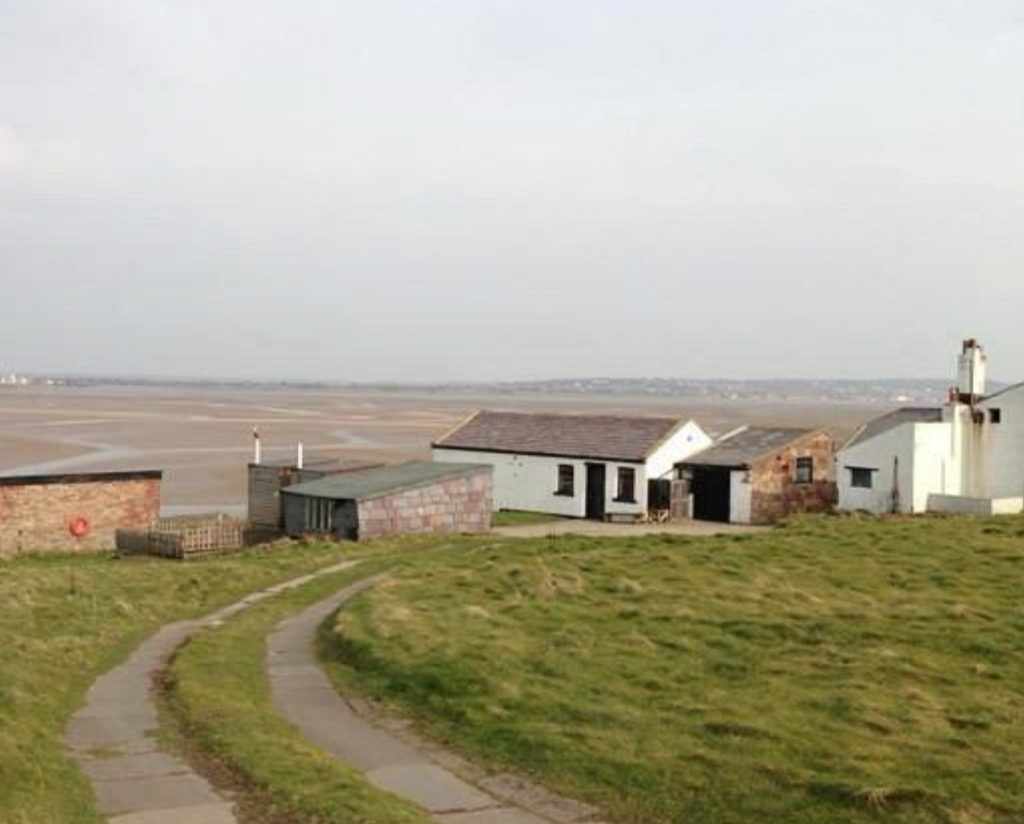A plan to turn dilapidated buildings on Hilbre Island into a centre for creative, scientific and heritage activity has been revealed.
The British Art and Design Association (BADA), the Friends of Hilbre and the Hilbre Island Bird Observatory are forming a community land trust with the aim of assuming responsibility for the structures.
BADA aims to transform a Grade II-listed Buoymaster’s workshop, store and house (pictured above) into artist studios, accessible via a membership scheme for day or overnight visits.
The Friends of Hilbre already utilise the day room for their community activities but want to make improvements to the building to better deliver public facing activities, such as sunset walks, seal watching and open days.
The Hilbre Bird Observatory would occupy Telegraph House for their programme of scientific
ornithological research and monitoring.
Two additional buildings, the Grade II-Listed Telegraph Station and unlisted Fog Cottage, will be managed jointly by the CLT.
The Telegraph Station functions as a visitor centre on open days, and Fog Cottage will be the island’s energy centre, housing the plant required for the island’s power needs.
The organisations involved stress that the project will be sensitive to the island’s status as a site of special scientific interest, and is not about turning it into a tourist attraction.

A report to Wirral Council’s environment, climate emergency and transport committee on Tuesday 12 March is recommending the buildings are transferred to the trust on a 30 year peppercorn rent to enable the project to move forward.
It says: “The business plan sets out a 2-phase approach. The first phase would involve a short-term lease which would enable the Trust to fund raise and undertake a scheme of basic works to enable their occupation.
“The second phase would follow the grant of planning permission and listed building consent for the necessary investment in Fog Cottage and Telegraph House. This would also require the Trust to secure significant grant funding for which they would develop a fund-raising strategy.”
The report reveals that the Trust would initially be funded by subscriptions from the three organisations. In addition, BADA proposes to generate income mainly through a membership scheme which allows access to the island’s studio for 10 months of the year, aimed at local educational institutions, supplemented by other events and courses.
An accompanying business plan, produced by BADA, states: “The intention is not for Hilbre Islands to become a tourist attraction. It will continue to serve the local community who have long visited the islands, as well as new targeted artistic and learning audiences through this project.
“Hilbre Island saw an increase in footfall with the onset of the pandemic, causing some degradation to the island’s ecology. The CLT is committed to enhancing Hilbre’s environment via building restoration and landscape management, but without excessive promotion that encourages greatly increased footfall.”
HILBRE’S HISTORY
- Hilbre, Middle Eye and Little Eye originally formed part of the mainland and became tidal after the last Ice Age ended about 11,500 years ago
- Ice Age hunter-gatherers and The Romans were early visitors to the island
- Stone remains of graves have been found on Hilbre, dating back to the 10th and 11th centuries, indicating a religious presence on the island pre-Norman Conquest
- A Benedictine cell of two monks and their servants lived on the island until the Dissolution between 1536-1541
- In the 16th to 18th centuries Hilbre Island and Hyle Lake became an important anchorage for shipping in the Dee Estuary when the river at Chester was silting up
- Hilbre Island was also used as an embarkation point for shipping troops, horses and equipment to Ireland during Elizabeth I’s Irish wars, and again during Cromwell’s Irish campaign
- A public house on Hilbre was first recorded in 1793 to cater for the crews of the small vessels who used the harbour, remembered locally as The Seagull Inn
- In 1826 the Trustees of the Liverpool Docks acquired the lease of the islands from Chester Cathedral in order to set up their first semaphore telegraph station, for communicating messages from Holyhead to Liverpool
Photo credits: BADA business plan